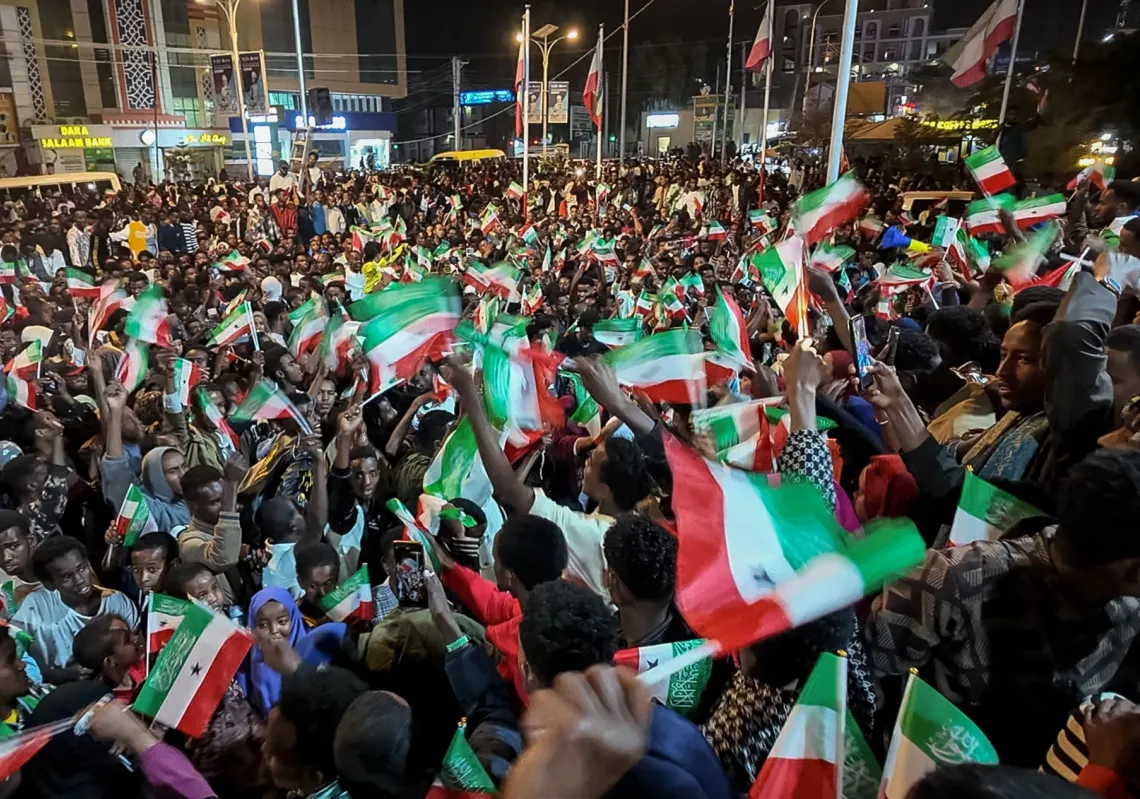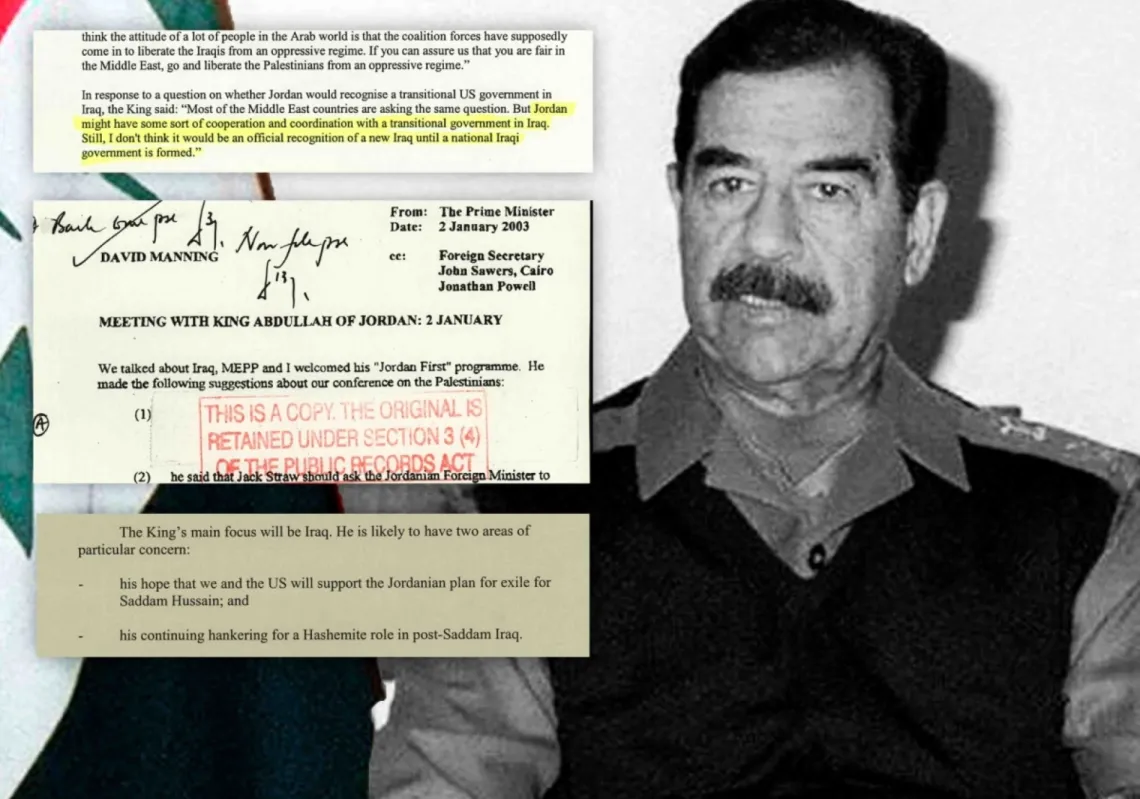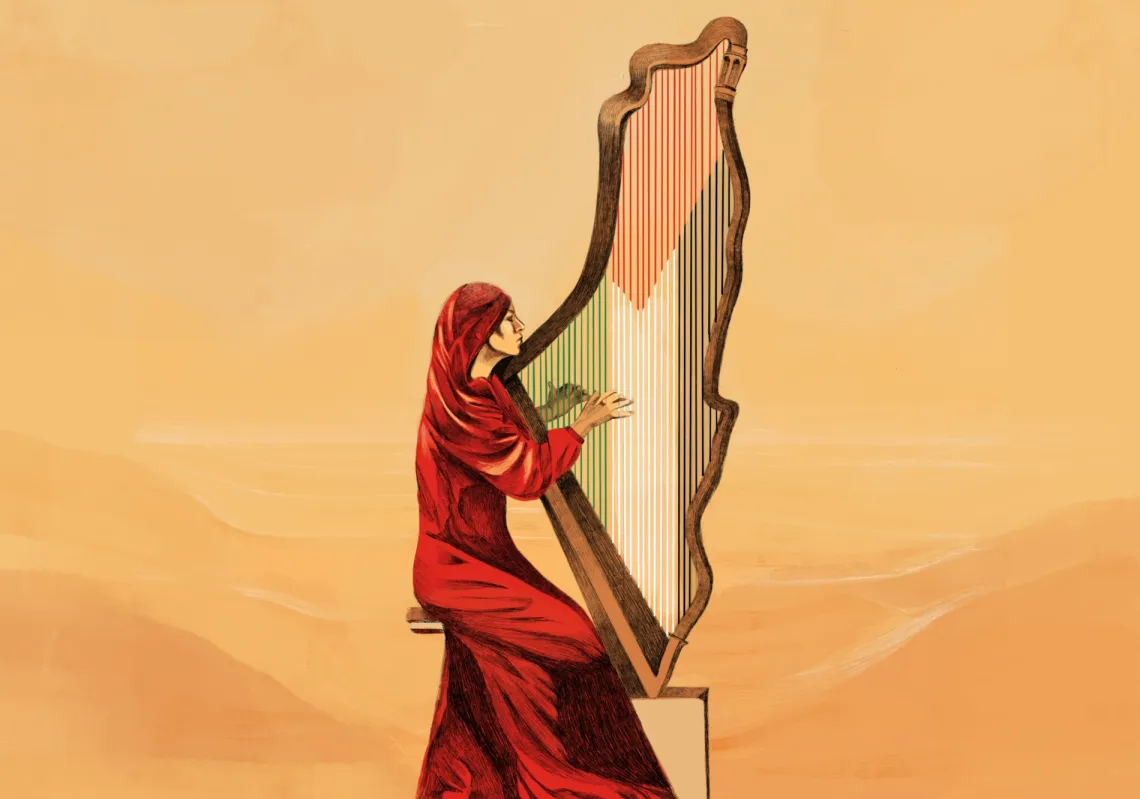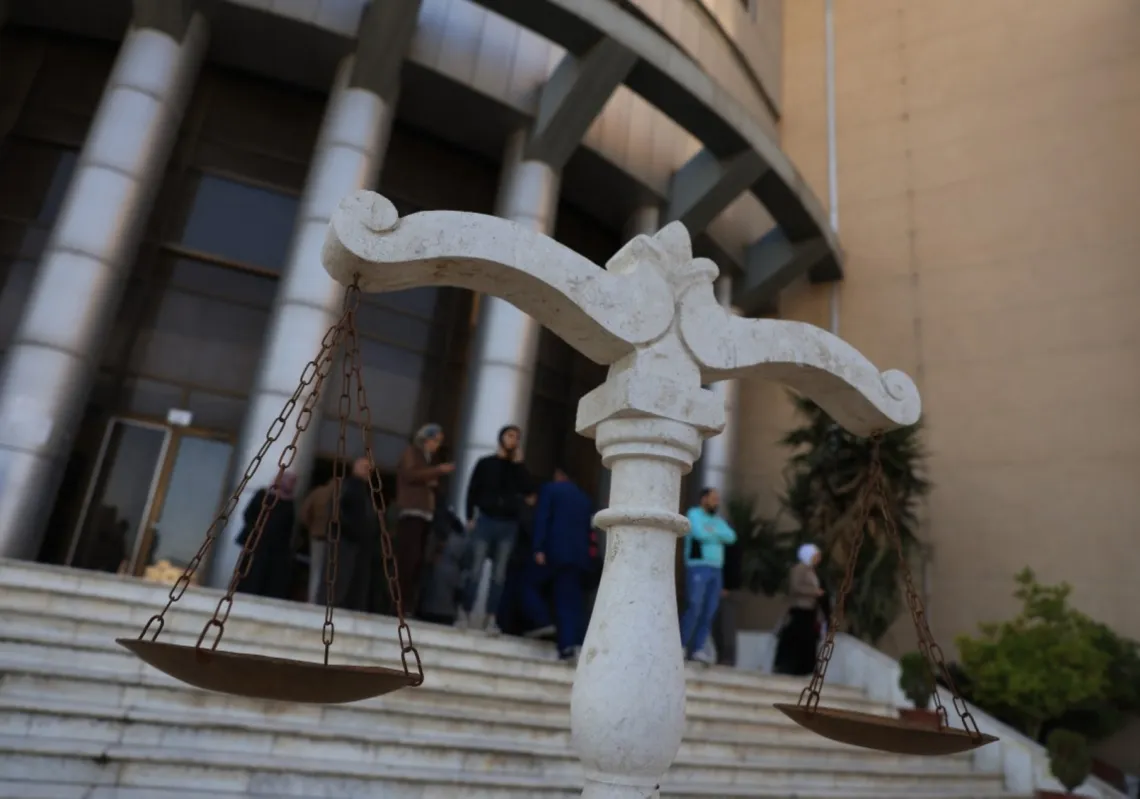In an exclusive interview with The Majalla, Mahdi Akef, General Guide of the Muslim Brotherhood ruled out the possibility of a non-Egyptian member of the Brotherhood taking the helm in succession of Akef, who has decided to step down by next January.
In this interview, Akef admits that he is under great pressure inside the Brotherhood to go back on his decision. Akef, who is over eighty, refused to name the most prominent candidates nominated to succeed him, stressing that it is all up to the World Shura Council of the Muslim Brotherhood. The seventh General Guide of the Brotherhood since its inception in 1928, said that he welcomes women's membership in the Guidance Office, and that there are no reservations among the Brothers regarding women assuming leading positions provided the political, security and political waters are clean enough. He also expressed his willingness to hold dialogue with the US administration, if invited. Akef also stressed that A Muslim Brotherhood party will never see light, blaming the current regime in Egypt for the prevailing state of despotism and corruption At the same time he dismissed rumours about any deals with the regime to let the regime inheritance scenario pass. Several other issues at stake were also highlighted during the interview with the Muslim Brotherhood chief in his Cairo down town office in the Manyal district.
Majalla: Your decision to step down at the end of your term of office next January has aroused wide interest and raised important questions as it is an unprecedented act in Egyptian political life. Does it reflect a personal desire? Or is it a new trend within the Group? What are the real motives behind this decision?
Akef: It is a trend in the Group since 1994, and I was the one who suggested that the term of office for the Brotherhood's "General Guide" would be 6 years, subject to renewal. But it was limited to two terms only. As for my decision to step down, it is not something new. The Muslim Brotherhood knows very well that since my election, I wanted to retire after I have reached the age of eighty. They have asked me to continue as the "General Guide" of the Brotherhood. I have been under a lot of pressure from many members within the "Guidance Office" to remain in office for a second term. I am pressured, even now, to reverse my decision. But it is a matter of principle for me. An institutional decision in terms of principle and a personal one in its outcome.
Majalla: There are some rumours about the possibility of choosing a reform leader for the Group, such as Abdel Moneim Abul Fotouh, or Essam el-Erian. Can you give us your comment on that matter? And, is it possible for a non- Egyptian figure to head the Muslim Brotherhood Movement?
Akef: This matter is left to the Group institutions and the Shura Council of the Brotherhood to decide upon. I do not interfere with its decision. The Shura Council is the institution responsible for choosing and electing the next "General Guide". I do not have the right to nominate anyone, and even if I did have that right I wouldn’t have nominated anyone. I would have let the Brotherhood institutions play their role in determining this matter.
As for the possibility of Dr. Abdel Moneim Abul Fotouh, or Dr. Essam el-Arian heading the Brotherhood, this matter also depends on the decision of the Shura Council of the international Muslim Brotherhood. The next leader may be someone from outside the Muslim Brotherhood of Egypt; Regulations allow for such a thing to happen. What is being said about the "General Guide" of the Brotherhood being always an Egyptian, according to the custom of the Brotherhood, is due to the fact that the different branches of the Muslim Brotherhood around the world recognize the value and history of Egypt and the status of the Muslim Brotherhood of Egypt.
And, while some of the members of the Muslim Brotherhood abroad might be more knowledgeable and better than us, I have never seen anything but deep respect and appreciation on their part for Egypt's Brotherhood and its status.
Majalla: There is some talk that the Group is still controlled by a conservative trend, which makes any talk about reform no more than a kind of propaganda aimed at improving the image of the Group. What can you say to this? Why doesn’t the Brotherhood admit the existence of different political trends within the Muslim Brotherhood movement, and allow the opposition to express their opinions freely and publicly?
Akef: This is not true. Such talk is no more than mere allegations repeated only by seculars. We do not have such things as conservative, reformist, old guard, and new guard. We do not make classifications of the kind that puts, for instance, the "General Guide" deputy, Dr. "Mohammed Habib", among the Hawks, and puts others among the Pigeons. The Muslim Brotherhood is an Islamic entity, based on Shura (democracy) and an institutional work system. What is being said in this regard is no more than idle talk, which is completely untrue. The people who repeat such talk have no idea about the true essence of our ideas, mission, and the message we want to deliver. They do not recognize the true nature of the Muslim Brotherhood and the kindness with which its members treat each other.
Regarding the second part of the question, one of the things that makes the Muslim Brotherhood a great Group is that it respects the opinion of others, whether it came from inside or from outside the Group. And, whenever I find that the leaders of the Brotherhood and the members of the Guidance Office are of the same opinion regarding a certain issue, I ask them to step back and revise their opinion. There is always an opinion different from your opinion. Such an environment is a healthy environment. In the end, what the brothers agree upon is what constitutes the policy of the Brotherhood, on condition that it is not in contradiction with the laws of Islam.
Majalla: Has the Group made a real progress in the process of its self-reform? What are the signals of this progress if any? And what are the steps you need, in your opinion, to take, in order to motivate the members of the Group to complete its reform?
Akef: The Group does not face any crisis that needs to be overcome. We develop ourselves every day and take whatever necessary action to promote the Group's progress and its members interests. We try to promote our mission. We do not spare any efforts to reform the society. Our initiative of political reform that we proposed in March 2004 highlighted many reforms to be made in the society at all levels and in all areas.
Concerning the Group's views and stance on the issues of internal reform or any other developments at stake, we quickly evaluate the situation when we observe a certain phenomenon that does not suit our beliefs. You know, Muslim Brothers are reform-oriented. It is our approach and will not change over time. Our stance on the issues of Copts, women, Zionist enemy and all other issues at stake is clear for all.
Majalla: Under presidency of Mahdi Akef, the Group of Muslim Brothers participated in the parliamentary elections that Egypt witnessed in 2005 and you won 88 seats. What are your expectations for the elections that will be held next year? Do you think you will make a similar success?
Akef: Yes, we won 88 seats. We could have won 120 seats if it weren't for acts of forgery that took place during the rounds of the election battle. In many constituencies, a lot of voters were prevented from participating in elections. I can not predict what will happen in the future. I also can not talk about any visualizations about the coming 2010 elections, or make any future scenarios regarding this issue or any other issue. Under such a corrupt, unjust and arbitrary government you can not form an opinion or predict future scenarios for such issues, particularly in the absence of law and lack of respect for court rulings and the articles of the Constitution.
But if there is a government that respects the law, the Constitution and the judiciary system, then in that case, based on scientific methods and scientific criteria, you can make future predictions regarding certain issues, or talk about future scenarios. In such an authoritarian climate, any talk about predictions for the future of the political situation in Egypt is futility incarnate. There is no real basis on which you can build your vision and your expectations.
Regarding our participation in the upcoming parliamentary elections, the principle of the Brotherhood is to participate in any elections. The Brotherhood will not abandon this principle, no matter what pressures it was exposed to, or whatever campaigns might be launched against it. The proportion of participation will be determined in due time.
Majalla: The issue of the Muslim Brotherhood establishing a political party has not yet been settled. It seems that the Group is not serious about this matter. What is your response regarding this? Why postpone the move until now?
Akef: The Muslim Brotherhood Political Party can not see the light of day as long as this tyrannical regime exists. The whole matter depends on the reality of political life in Egypt and the positions of the ruling regime. There cannot be a party program for the Brotherhood, until the government shows respect for the law, the judiciary system, and above all, the people themselves. Contrary to what some people say, the criticism which the party's program received was not the reason why such a move was postponed. As a matter of fact, we have benefited greatly form listening carefully to the excellent opinions which we received on the party's program. However, the emergence of the Muslim Brotherhood Party on the political scene is subject to a change of the political climate in the country.
Majalla: Your time as a "General Guide" has witnessed the emergence of a new generation of bloggers and reformers from the young members of the Group. How do you see these ramifications? Why has the youth so far played a limited role within the leadership of the Group? Why don't the leaders of the Group, who are over seventy years of age, step down?
Akef: I support the bloggers, and I am glad that such a phenomenon has emerged among the Group. I also support the wide spreading of such a phenomenon. I told them that I wanted a million bloggers within the Group. I have listened to them and to their views and advised them to take the message they want to deliver seriously, and to define their vision and not be carried away with the newspaper headlines, which only seek to create excitement.
In response to what is being said about the marginalization of the role of youth and their exclusion from leadership positions within the Group, let me ask you this: who runs the Group in many locations and on different levels? You will find that there is a large role granted to young people. You will also find that only four members of the "Guidance Office, which is about to end its term in the coming few months, are over sixty years of age. Mohieddin Hamid, a member of the "Guidance Office", is only 48 years old; Dr. Muhammad Saad al-Katatni, head of the parliamentary bloc of the Muslim Brotherhood, is only 49 years old; and Abu Fotouh, Dr. Muhammad Mursi, and others are only over fifty years old. Regulations do not prevent a thirty year old person from being a member of the "Guidance Office". I recall that during the era of the late Mr. Hassan Hudhaibi" - may God have mercy on his soul - when many of the brothers were thrown in prison, the oldest member of the Guidance Office was Mr. Omar Telmsani. You will be surprised when I tell you that he was 38 years old at that time.
Majalla: Despite the role played by the women members of the brotherhood in helping the candidates of the brotherhood win seats in the parliament, the brotherhood is being criticized for marginalizing the role of women within the Group, diminishing their responsibilities, and even depriving them of many of their rights within the Group? What is your comment about this?
Akef: The role of women is still important and influential within the Group. Intentional reports state that clearly and praise such a role. The role of the brotherhood sisters is evident through their presence in the Egyptian life, and their participation in politics and in the parliamentary elections which the Group participates in, in addition to their educational role among their families. Women do not occupy a leading position at the Guidance Office, because we which to protect them. However, if a civilized regime existed, which respects the law and the citizens, then they are welcome to enter the Guidance Office.
Majalla: Difficult issues such as the regime inheritance in Egypt continue to be raised in the political arena. Is it possible to make a deal in this regard with the ruling regime in return for some gains and the easing of the security grip on you?
Akef: First of all, we do not make any deals with the current regime. We do not expect any good to come from such a despotic regime. All the lawsuits filed against the Group were fabricated by corrupt security instructions. The repeated accusations against the honourable members of this nation can only be understood if they were put in the context of the regime’s attempts to settle accounts with the Muslim Brotherhood.
Majalla: A State of political and media momentum accompanied the U.S. president's visit to Cairo. How do you see this visit? What are your expectations regarding its outcome?
Akef: Unless one agenda and one objective unite the Arabs, I do not expect anything good to come from the West. But as long as the Arabs remain scattered and torn by internal conflicts, do not expect any outcome from this visit. However, this does not mean that I refuse to enter into a dialogue with the other: if I receive an invitation to enter into a dialogue with the US, I will accept the invitation.








